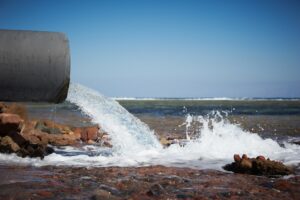Can Water Actually Expire?
Technically, water itself does not expire. Pure H₂O — when uncontaminated and stored properly — is a stable, non-reactive compound. However, how water is stored, what it’s stored in, and how long it sits unused can affect its taste, safety, and sustainability.
So while water doesn’t go bad in the traditional sense, the container and environmental exposure can change its quality over time.
Why Bottled Water Has an Expiration Date
In many regions, bottled water is labeled with a 1–2 year expiration date. This isn’t because the water spoils — it’s mostly due to:
1. Packaging Degradation
Plastic bottles (especially PET) can leach chemicals like antimony and microplastics into the water over time, especially if stored in warm or direct sunlight conditions.
2. Taste Deterioration
Plastic can absorb odors and release off-flavors into the water, making it taste stale.
3. Regulatory Requirements
Some regions mandate a labeled expiration date on all consumables, including water, to guide safe storage practices.
Shelf Life of Different Types of Water
| Water Type | Shelf Life Estimate | Notes |
|---|---|---|
| Bottled (plastic) | 1–2 years (sealed) | Avoid heat and sunlight exposure |
| Bottled (glass) | 2+ years (sealed) | More stable, no leaching |
| Tap Water (stored) | 6 months (properly stored) | Store in clean, sealed, food-grade containers |
| Distilled Water | 12–24 months | Highly pure, long shelf life if sealed |
| Rainwater | 1 week (untreated) | Must be filtered and purified for safety |
Best Practices for Safe Long-Term Water Storage
Use the Right Containers
- Glass: Best for taste and safety; fully recyclable and inert
- Food-grade plastic (HDPE): Safer than PET, but avoid heat
- Stainless steel: Excellent for short-term daily use
Store in a Cool, Dark Place
Keep water out of direct sunlight and away from chemicals or fumes that could leach into the container.
Label and Rotate
If storing tap water or bulk emergency water, label the date and rotate every 6 months to ensure freshness.
Treat Before Long-Term Storage
For stored tap or rainwater, consider adding water treatment drops (like chlorine or iodine tablets) or boiling before sealing.
Sustainability Tips: Reduce Plastic Waste from Bottled Water
Avoid Stockpiling Bottled Water
Instead of buying large amounts of disposable bottled water:
- Store tap water in reusable glass or HDPE containers
- Invest in a gravity-fed or portable water filter for emergencies
Use Refillable Water Stations
Many grocery stores and co-ops offer filtered water refill stations. Bring your own containers to reduce waste.
Choose Reusable Containers
Switch to BPA-free bottles, stainless steel canisters, or jugs with spigots for everyday use and emergency prep.
Common Questions About Water Expiration
- Can I drink expired bottled water?
Yes, if the seal is intact and it’s been stored properly — but check for taste and odor changes. - How do I know if water has gone bad?
Look for cloudiness, strange smells, or particles. Discard if in doubt. - Does distilled water expire?
It lasts longer than tap water, but can still be affected by storage container quality. - Can bacteria grow in stored water?
Yes — especially if it’s been opened or stored in unclean containers. Always sanitize before long-term storage. - Is it safe to store water in plastic jugs?
Food-grade plastics are safe short-term, but glass or stainless steel are better for long-term sustainability. - How much emergency water should I store?
FEMA recommends 1 gallon per person per day for at least 3 days — more in hot climates or for cooking needs.
Final Thoughts: Water Doesn’t Expire, But Quality Matters
While water doesn’t spoil, how it’s stored makes all the difference. For sustainability-minded households, minimizing reliance on single-use bottled water is key. Instead, opt for safe, long-lasting containers and practical storage practices.
By taking steps to properly store water at home, you not only protect your health and safety — you also reduce plastic waste and support a more resilient, eco-conscious lifestyle.









Reader Interactions